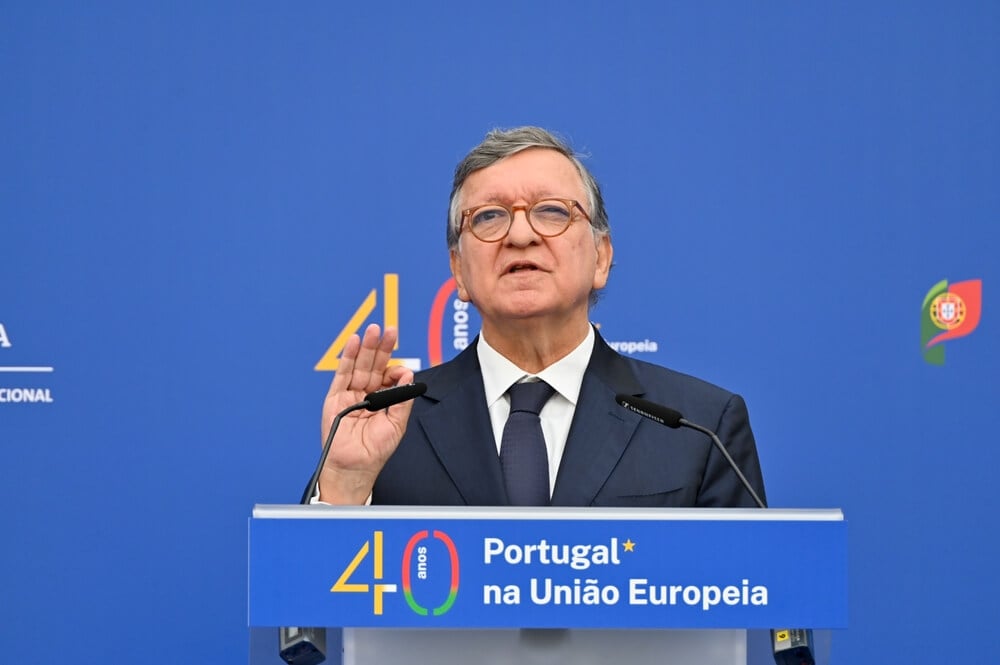We live in a world that seems increasingly fractured and prone to conflict. But experience in both the public and private sectors has taught me that periods of geopolitical unrest are precisely the moments when we should take a step back and consider what unites us.
The ties that bind people together across borders, generations, and cultures must be celebrated and strengthened.
Many of our differences and disagreements melt away when we recognize the simple truth that everyone wants the next generation to grow and thrive in a world that is safer, fairer, and more prosperous than the one they entered.
The question is how to translate this universal instinct into concrete collective action.
One answer that almost everyone can agree on is protecting children and communities through immunization.
To show their commitment to this important cause, heads of state and government will convene in Brussels on June 25 for Gavi, the Vaccine Alliance’s Global Summit: Health & Prosperity through Immunization.
Preventing the spread of deadly infectious diseases
With their pledges of support, Gavi (where I have chaired the board for the last five years) can continue preventing the spread of deadly and debilitating infectious diseases, especially among the most vulnerable segments of society.
Increased uptake of vaccines has already transformed the world for the better. When Gavi was established a quarter-century ago, millions of children died annually from diseases like measles and pneumonia.
These deaths represented an unconscionable tragedy because they could have been prevented easily. Gavi was founded to put a stop to this needless suffering.
Gavi’s public-private model is unique among global health organizations
Gavi’s public-private model is unique among global health organizations. By bringing together vaccine manufacturers, national governments, donors, and grassroots organizations, Gavi has vaccinated more than one billion children in low- and middle-income countries since its inception, preventing nearly 19 million deaths and helping to halve childhood mortality.
Moreover, the organization has built effective global defenses against pandemics and other infectious threats by creating and maintaining emergency vaccine stockpiles.
Remarkable returns
Investing in Gavi’s immunization efforts has produced remarkable returns. Since 2000, the organization’s work has generated $250 billion in broader economic benefits in the low- and middle-income countries where it operates, helping 19 of them to outgrow the need for vaccine support.
Recognizing the vital role that immunization plays in enhancing public health and resiliency, several of these “Gavi graduates” are now donors themselves.
This week’s global summit will determine the future of Gavi’s immunization efforts
This week’s global summit will determine the future of Gavi’s immunization efforts. As the organization approaches its next five-year strategic period – possibly the most consequential in its history – we are calling for renewed financial and political commitments to protect the next generation.
Our goal over the next five years is to vaccinate 500 million children in the world’s poorest countries against 19 diseases.
A global public good
For the first time in history, we have a vaccine that can turn the tide against malaria. We can also protect millions of girls against cervical cancer with the HPV vaccine, maintain progress against preventable killers like measles and typhoid, and provide children in conflict-riven and displaced communities with basic vaccinations.
But none of this can be achieved without the financial backing of donor countries and partners.
Of course, most donors are juggling competing budget priorities, particularly as policymakers, confronting geopolitical uncertainty and deepening polarization between countries, push for higher defense spending.
 The world can find common purpose when it comes to immunization - José Manuel Barroso
The world can find common purpose when it comes to immunization - José Manuel Barroso
But, as the COVID-19 pandemic illustrated, ensuring our citizens’ safety cannot be achieved through military might alone. Resilience requires investment in health security.
Moreover, because immunization is a global public good, efforts to provide it can create fertile ground for further cooperation.
Even amid all of life’s economic, political, and scientific complexities, sometimes the choices we face are simple. There is no future without children.
Improving access to vaccines is perhaps the single most effective and scalable tool at our disposal to stem the spread of preventable diseases that threaten too many young people and cause unnecessary deaths.
Regardless of our differences and disagreements, I am confident that the world can find common purpose when it comes to immunization, and that, working together, we can begin to create the conditions for a better and more hopeful future.
José Manuel Barroso, a former president of the European Commission and prime minister of Portugal, is Chair of the Board of Gavi, the Vaccine Alliance.